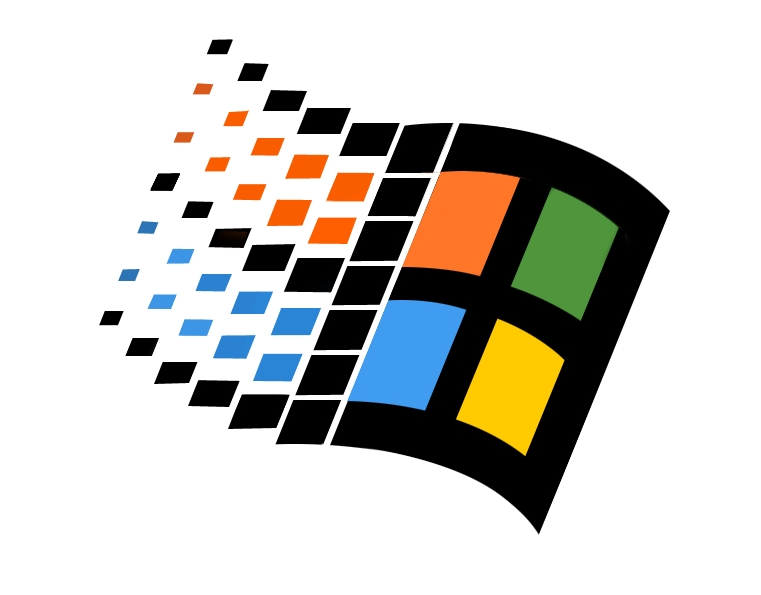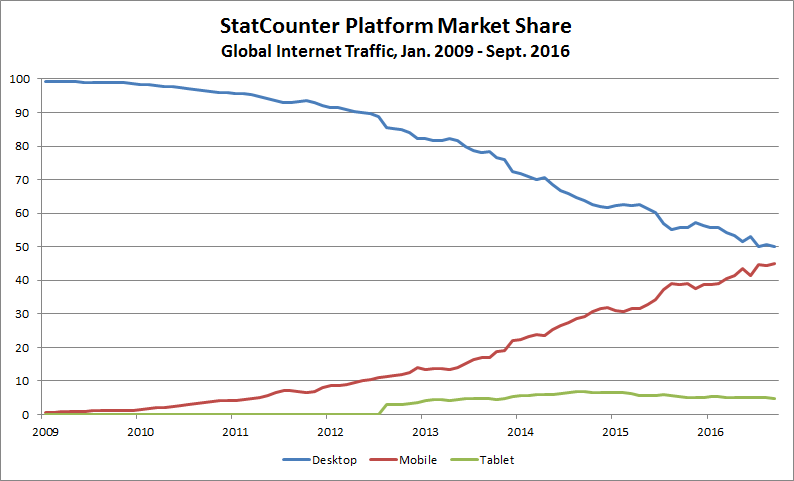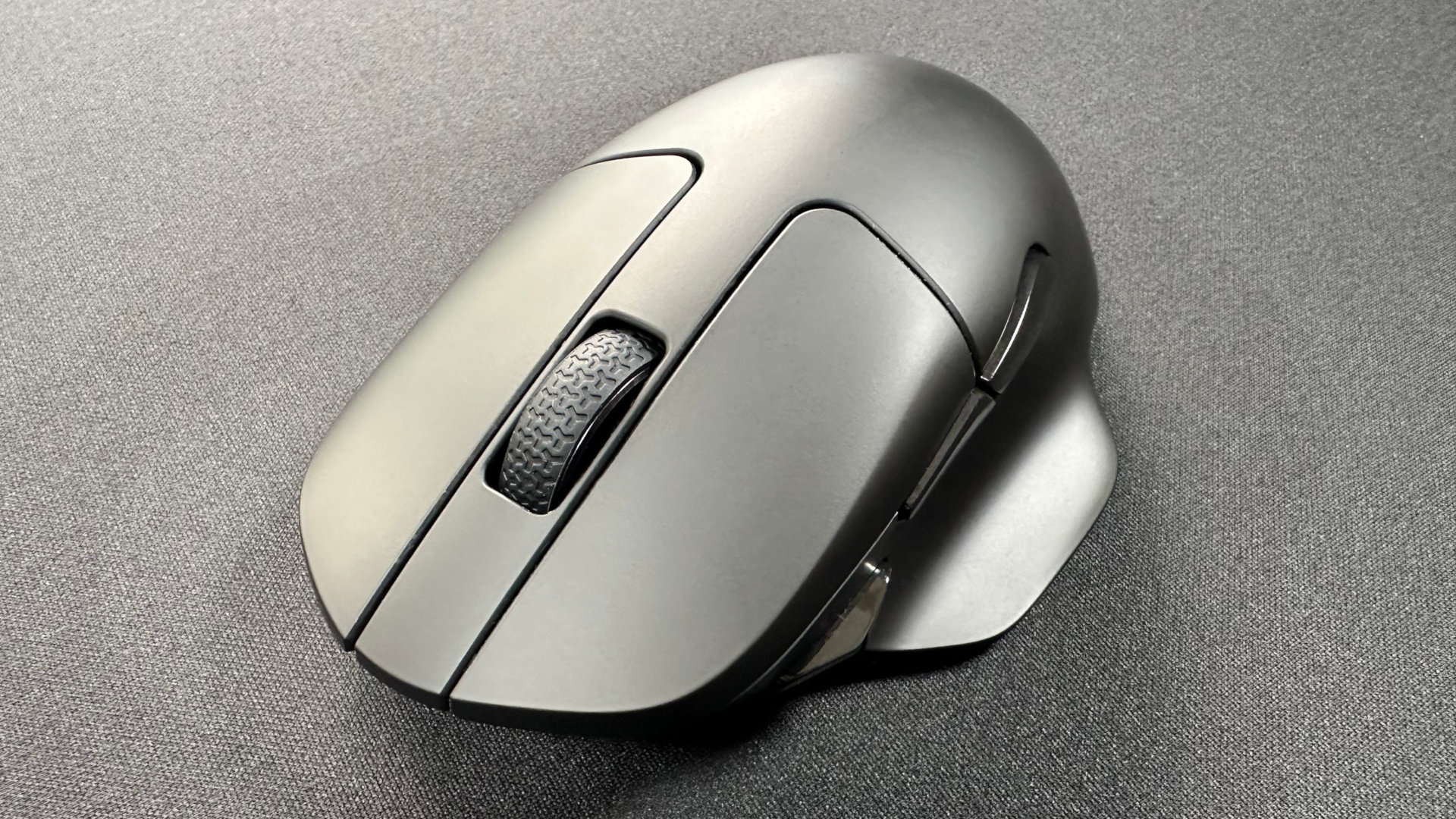Is Microsoft's dominance set to end soon?
Nine years of innovation have created the biggest threat Microsoft has ever faced.

Windows has been the leading OS for so long that many people have never used anything else. My first computing device was a Magnavox Odyssey II, before moving to the Commodore 64. I switched to DOS PCs in the late '80s, with hard drives that left floppies sucking dust, and never looked back.
Windows became the friendlier face of Microsoft, and while it hasn't been the only choice—various flavors of Unix/Linux and Apple's MacOS and OS X have always been around—outside of servers and workstations, most PCs in the workforce have been running Windows or DOS for over 30 years.
That dominance is eroding, and it's not a competing desktop or laptop OS that's closing in on Windows—it's the rising tide of Android and iOS. When Apple created the first* touchscreen smartphone in 2007, it clearly had the potential to change the way we looked at technology, but it was still very slow and had some obvious flaws. Google released Android about a year later, and again it showed promise, but had clear limitations. Nine years of innovation for both platforms have created the biggest threat Microsoft has ever faced—and, by all metrics, Microsoft is losing this battle.
[* - Not technically the first, but the first truly successful touchscreen smartphone.]
Data from Netmarketshare over the past five years shows that Microsoft Windows has dropped from 88 percent to just 63 percent of total Internet traffic. Mobile OSes represent nearly 30 percent of web traffic, and mobile Windows hasn't managed to gain any traction—Android and iOS combined snag 94 percent of the mobile OS market, with Android controlling the lion's share at 66 percent.

Global numbers from StatCounter show even higher mobile market share, with desktop systems (including laptops) dropping from 95 percent in 2011 to just 50 percent today. Even accounting for margin of error in the data collection methods—PC Gamer's own traffic sits at around 30 percent mobile, though we're a PC-centric site—the numbers represent a sea change whose impact is only beginning to be felt.
A big reason for the shift is the convenience of mobile devices, and while software is important, the hardware story is equally if not more meaningful. As hardware enthusiasts, we've seen massive leaps in performance over the past few decades. But for average Joe users, hardware requirements have been sitting on a plateau for several years. I still have an i7-920 in use and running Windows 10 just fine, thank-you-very-much. That's an eight-year-old part, helped by a GPU and SSD upgrade, but back in the '90s and early '00s, I wouldn't have been caught dead with such an old "clunker"!
Keep up to date with the most important stories and the best deals, as picked by the PC Gamer team.
Desktop and laptop CPUs have seen moderate 5-10 percent improvements per year over the past decade, and mobile processors have dramatically narrowed the gap. For example, Apple's A9 SoC found in the iPhone 6S/SE line is around 70 percent faster than the previous A8 chip, and the A8 is about 50 times faster than the original iPhone's S5L8900. The new iPhone 7's A10 meanwhile is another 40-50 percent jump over the A9. Small wonder, then, that many current smartphones are quickly approaching the "fast enough" era, with Apple's A9X not far behind Core M Skylake parts.
At the current rate, sometime in the next two to four years, mobile OS use will likely pass Windows (at least in terms of Internet traffic). It's a brave new world in our always-on, always-connected digital lifestyle, and Microsoft isn't in the driver's seat anymore. The good news is there will always be a place for high-performance systems, because a handheld device will never beat a system consuming 100 times as much power—something has to sit in the background running all of the infrastructure, after all. But I suspect in another 20 years, people will look at desktops and even laptops the same way we look at the refrigerator-sized mainframes of the '70s: relics of a bygone era.
If Microsoft does end up being toppled from the computing OS throne, we have to wonder: Which platform will be the best way to get our gaming fix? Linux may not have taken over the desktop, but it's doing a damn fine job on mobile, thanks to Android. The longbeards may yet have the last laugh.
Jarred's love of computers dates back to the dark ages when his dad brought home a DOS 2.3 PC and he left his C-64 behind. He eventually built his first custom PC in 1990 with a 286 12MHz, only to discover it was already woefully outdated when Wing Commander was released a few months later. He holds a BS in Computer Science from Brigham Young University and has been working as a tech journalist since 2004, writing for AnandTech, Maximum PC, and PC Gamer. From the first S3 Virge '3D decelerators' to today's GPUs, Jarred keeps up with all the latest graphics trends and is the one to ask about game performance.


